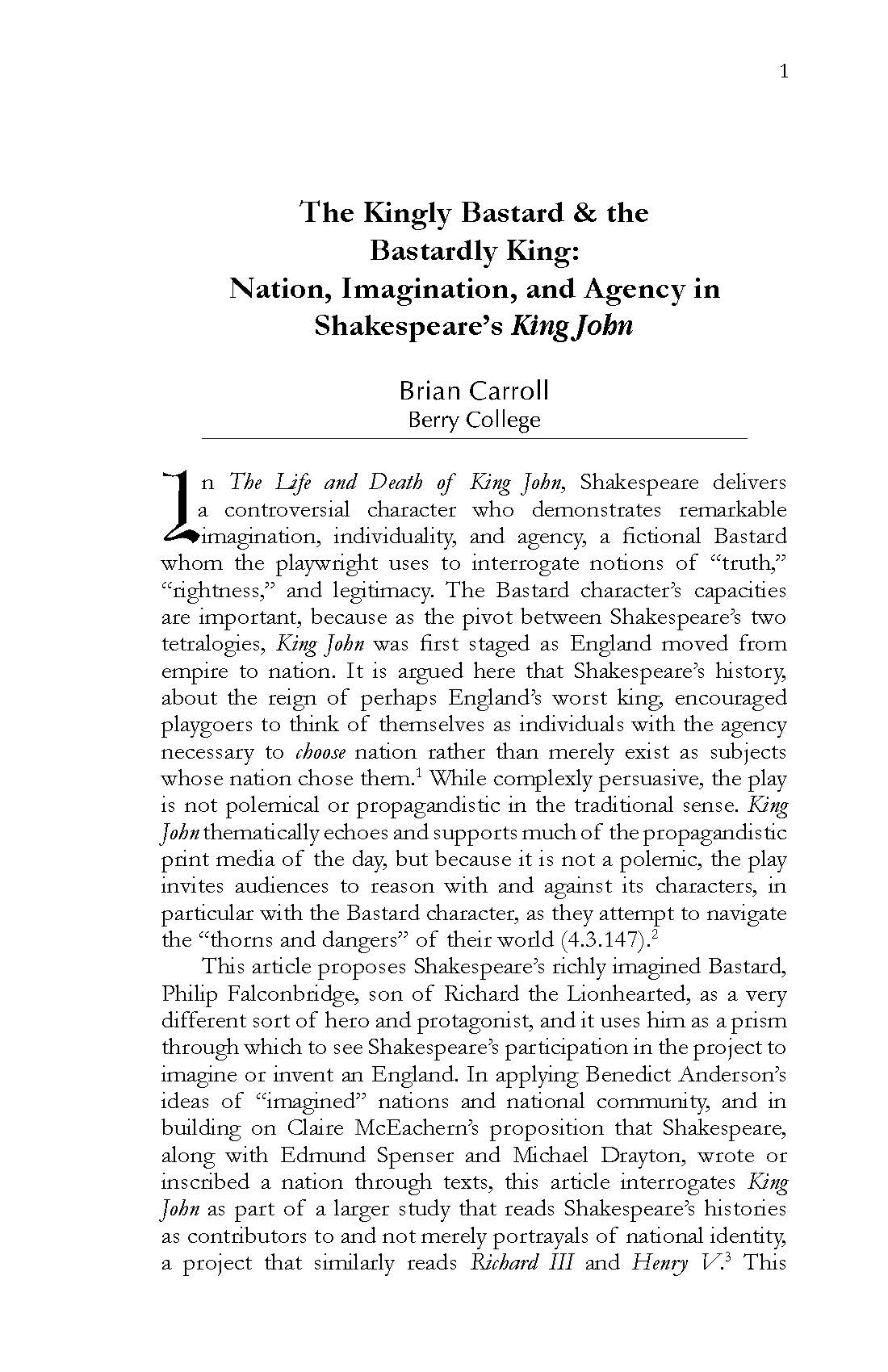The Kingly Bastard & the Bastardly King: Nation, Imagination, and Agency in Shakespeare’s King John
Main Article Content
Abstract
In The Life and Death of King John, Shakespeare delivers a controversial character who demonstrates remarkable imagination, individuality, and agency, a fictional Bastard whom the playwright uses to interrogate notions of “truth,” “rightness,” and legitimacy. The Bastard character’s capacities are important, because as the pivot between Shakespeare’s two tetralogies, King John was first staged as England moved from empire to nation. It is argued here that Shakespeare’s history, about the reign of perhaps England’s worst king, encouraged playgoers to think of themselves as individuals with the agency necessary to choose nation rather than merely exist as subjects whose nation chose them.1 While complexly persuasive, the play is not polemical or propagandistic in the traditional sense. King John thematically echoes and supports much of the propagandistic print media of the day, but because it is not a polemic, the play invites audiences to reason with and against its characters, in particular with the Bastard character, as they attempt to navigate the “thorns and dangers” of their world (4.3.147).2
